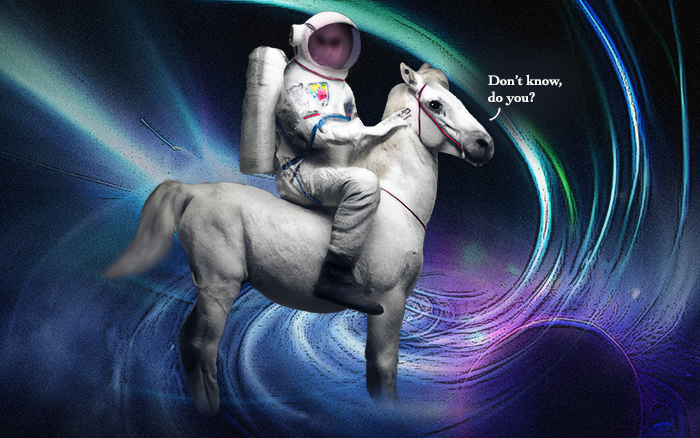A man named Bertrand Russell once said, “I would never die for my beliefs because I might be wrong.”
I like this about old Bertrand. I share in this thought with him for a few reasons, but the big reason comes from Socrates himself, when he said, “The more I know, the more I realize I know nothing.”
First of all, let’s get things straight about the Socrates quote. A lot of people think he said this quote as a way of humble-bragging about his own wisdom. But that just isn’t so. In reality, his words were meant to be much more profound than that.
In this wisdom of non-wisdom, Socrates was really saying that we can never truly know anything for certain. We can have beliefs and opinions, but we can never know for sure if these things are correct. It is a profoundly philosophical idea that thinkers have debated for centuries.
Okay. My name is Polly Kronenberger. That’s a fact. Right? I mean, that’s what it says on my birth certificate. And 2 + 2 = 4. That’s been proven. Hasn’t it?
Well, facts are considered to be objective and verifiable statements about the world. They are not beliefs or opinions. Instead, they are supported by empirical evidence and observations. For example, the Earth orbits the Sun. This is considered a fact, as it is based on scientific evidence and observations.
But in truth, these things can be questioned on many levels. Perhaps they are true in our understanding of the Universe, and by our current abilities to operate only in three spatial dimensions based on the coordinates of x, y, and z. And, of course, one temporal dimension, which is time. But what if there are more dimensions, as suggested by things such as the “string theory” and the “M-theory” and others? And with the existence of this arena, our current understanding of everything becomes skewed.
The philosophical idea behind this is rooted in epistemology. What is epistemology? It is the study of knowledge, its nature, and its scope. But here is the twisty-turny. One of the fundamental questions in epistemology is about the nature and limits of knowledge.
The “limits of knowledge.”
So, it basically says that we can gather evidence and support our beliefs and opinions with various degrees of confidence. That’s “various” degrees of confidence. But — and this is a big but — absolute certainty is challenging to attain.
To expand on this. In some fields, like mathematics, certain facts can be known with absolute certainty. This is due to deductive reasoning. For instance, in mathematics, 2 + 2 = 4 is an absolute truth based on the definitions and axioms of arithmetic.
On the other hand, in everyday life and in many functional situations, we often rely on a practical form of certainty. We have beliefs and opinions based on the evidence available. But there is no absolute certainty.
For example, we believe that the chair we sit on will support us because it has done so in the past, and we have seen others use it without any problems. While it is possible that the chair might break unexpectedly, we have enough confidence to sit on it based on our past experiences and observations.
Or. We believe the jar on the grocery store shelf marked “grape jelly” will, in fact, contain grape jelly. But, we do not know this to be true with absolute certainty, until of course, we test the contents for ourselves.
It goes much deeper than this, though, when we consider the dimensions of the Universe that most likely exist, but we humans are too dull to understand them as of yet.
I should also add that Bertrand Arthur William Russell was a British mathematician, philosopher, logician, and public intellectual. He had a considerable influence on “mathematics, logic, set theory, linguistics, artificial intelligence, cognitive science, computer science and various areas of analytic philosophy, especially philosophy of mathematics, philosophy of language, epistemology, and metaphysics.”
He died in 1970 when he was 97 years old as a result of the flu, and not for his beliefs.
“””””””””””””””””
A wise man proportions his belief to the evidence.
— David Hume
“”””””””””””””””””
Remember that what you believe will depend very much on what you are.
— Noah Porter
“”””””””””””””””””
A belief is not merely an idea the mind possesses; it is an idea that possesses the mind
— Robert Oxton Bolton
“”””””””””””””””””
Don’t know it. Or do we? Or don’t we?
